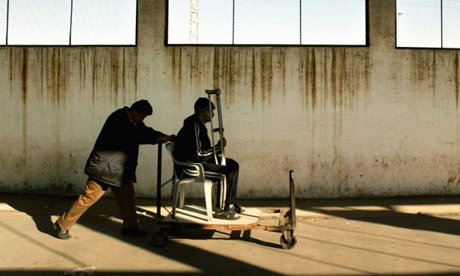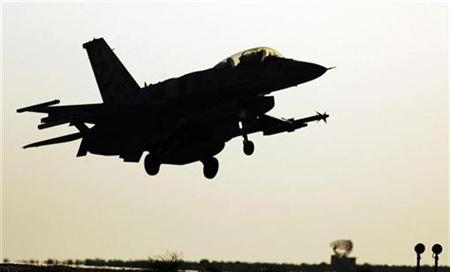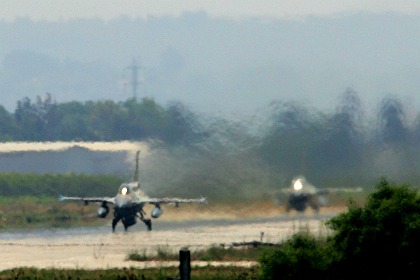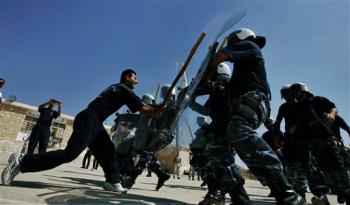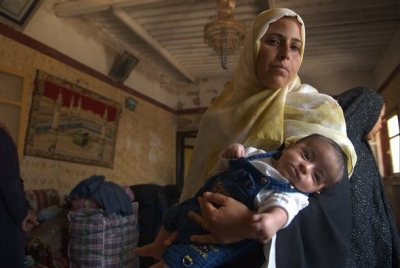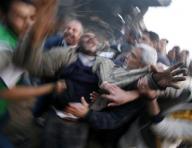Gaza decision in days
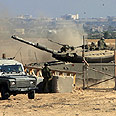

Army is ready for Gaza operation, waiting for Olmert to make final decision
“The sand in the hourglass is running out,” Defense Minister Ehud Barak promised Thursday in a meeting with municipal leaders in the Gaza region.
His words could be understood to mean that a significant IDF operation in Gaza is in the cards, and that we are not talking about months or weeks from now, but rather, something that will take place within days. The military blow, he said, will come before the lull.
Barak is attempting to blur his message and refrain from giving Hamas any clues, but it appears he already decided – even before the cabinet meeting and consultations with other ministers – that a truce with Hamas without a military blow that precedes it is no longer a realistic option.
It appears that on this issue he is in agreement with the prime minister. The IDF chief of staff also decided that there is no other way but a military operation, even though the political leadership is unable to point to a required diplomatic achievement that would stem from this high-risk military move.
The army would perhaps prefer air attacks accompanied by some ground operations against a very large number of Hamas targets. Yet this is not very realistic, because for such activity to take place military intelligence and the Shin Bet are supposed to provide hundreds of high-quality targets, and this, how shall we put it, is not quite working out.
What is left is to take over problematic areas on the ground, using the air power lever, in the hopes that developments would not require a reserves call-up and full occupation of the Strip.
On Thursday, we still saw contacts between the Defense Ministry and the Egyptians regarding the answers Israel is supposed to provide to the truce offer and regarding a trip by top defense official Amos Gilad to Egypt. For the time being, Gilad is not going anywhere, Hamas is not giving any good reason to believe in the truce, and the IDF is on alert ahead of various types of operations in the Strip.
We are talking about phased activity, the plans are in place, and the army is practicing at this time. If the activity expands to occupying significant parts of the Strip for long periods of time there is also a plan for a reserves call-up.
Hamas must be laughing
The IDF is prepared to engage in fighting vis-à-vis Gaza within a short period of time. What are we waiting for? Why does it have to take days? We’ve already been there. Bush came and went, and the 60th birthday celebrations are over. So what’s the excuse now for not taking off the gloves against Gaza? The Shavuot holiday? Indeed, that’s a good reason not to spoil the people’s mood and the trips to the Negev. But Shavuot will be followed by summer vacation and then by Rosh Hashana. We can always find reasons to postpone tough decisions.
(Madness alive and well. – The Infinite Unknown)
Read moreIsrael ready for Military Operation in Gaza
